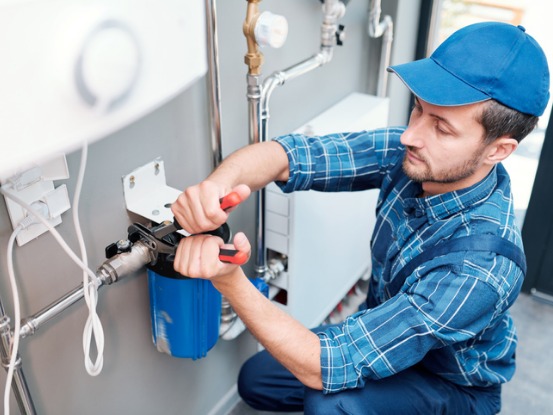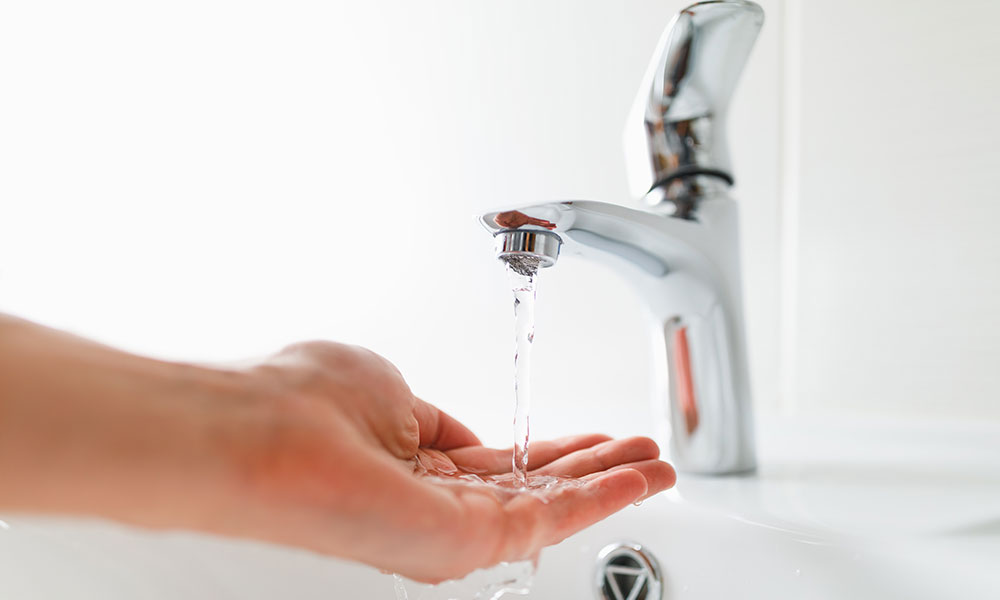Useful Remedies for Tackling Low Water Pressure in Your Home
Useful Remedies for Tackling Low Water Pressure in Your Home
Blog Article
This post further down involving Low Water Pressure in the House? is quite enjoyable. Read it for your own benefit and decide what you think of it.

Low tide pressure in your home can be a discouraging issue, impacting whatever from showering to cleaning recipes. If you're experiencing weak water circulation, there are several possible causes and solutions to check out. In this overview, we'll review usual reasons for low tide pressure and useful steps to deal with the problem efficiently.
Introduction to Low Water Pressure
Low tide stress takes place when the circulation of water from your taps, showers, and other components is weak than usual. This can make day-to-day jobs more difficult and less efficient. Recognizing the reasons for low water stress is vital to finding the best solution.
Typical Sources Of Low Water Pressure
Faulty Stress Regulators
Pressure regulators are accountable for keeping constant water stress in your home. If they malfunction, it can result in low tide stress or unequal flow throughout your house.
Metropolitan Water Issues
Sometimes, the issue exists outside your home. Metropolitan water supply concerns, such as main line leakages or upkeep work, can temporarily minimize water pressure in your location.
Pipe Obstructions
Over time, pipes can end up being blocked with mineral deposits, debris, or debris, limiting the flow of water. This is a typical concern in older homes with galvanized steel pipes.
Corrosion
Corrosion within pipes can cause leaks and reduced water stress. Corrosion buildup can tighten water circulation, particularly in aging plumbing systems.
Just How to Identify Low Tide Pressure
Examining Pipelines
Check noticeable pipes for signs of leaks, deterioration, or obstructions. Take notice of any kind of unusual audios, such as banging or rattling pipelines, which could show problems within the plumbing system.
Consulting with a Plumber
If you're unable to determine the root cause of low tide pressure, think about working with a specialist plumber to carry out a thorough examination. They can recognize underlying concerns and suggest ideal options.
Inspecting Faucets and Fixtures
Begin by examining the water pressure at different taps and fixtures throughout your home. If the problem is isolated to details locations, it might indicate localized troubles.
DIY Solutions to Deal With Low Water Stress
Flushing Water Heater
Debris buildup in the water heater can restrict flow and minimize effectiveness. Purging the storage tank periodically aids remove debris and keep ideal efficiency.
Checking Pressure Regulatory Authority
Ensure that the stress regulator is functioning appropriately. Changing or replacing the regulator can help restore proper water stress throughout your home.
Cleansing Aerators and Showerheads
Mineral deposits can build up in aerators and showerheads, minimizing water circulation. Get rid of and cleanse these parts frequently to boost water stress.
Cleaning Clogs in Water Lines
For small obstructions, attempt using a plumbing serpent or chemical drainpipe cleaner to clear obstructions in pipelines. Be cautious when using chemicals and adhere to safety and security standards.
When to Call a Specialist Plumber
If DIY initiatives fail to fix the problem or if you believe significant plumbing troubles, it's ideal to look for support from a certified plumber. They have the experience and devices to deal with complicated problems safely and successfully.
Preventive Measures to Maintain Water Pressure
Mounting a Pressure Booster
Think about mounting a pressure booster pump to boost water stress in locations with consistently low circulation. This can be specifically useful for multi-story homes or residential properties with high-demand fixtures.
Surveillance Water Use
Bear in mind water use practices and stay clear of ill-using the plumbing system. Straightforward adjustments, such as astonishing showers and washing lots, can aid maintain ample water pressure.
Routine Upkeep
Schedule routine maintenance for your plumbing system to avoid problems such as rust, leakages, and blockages. Dealing with minor troubles early can aid stay clear of even more considerable repair services in the future.
Verdict
Managing low water stress can be discouraging, yet determining the underlying causes and executing ideal remedies can bring back optimal flow throughout your home. Whether it's cleaning aerators, examining pipelines, or talking to a plumber, taking aggressive steps can ensure a stable supply of water for your daily demands.
How to Fix Low Water Pressure In Your Home
Municipal Water Supply Issues
Scheduled maintenance, high demand, and water main breaks are all potential causes for low water pressure within a city or county’s water lines. While there’s not much you can do to personally fix a problem with your city or county’s water supply system, you can play a big role in documenting the issue and alerting those who can.
How to fix it:
Ask your neighbors if they are experiencing any issues with low water pressure. If multiple homes are affected, it’s likely related to the city’s water line. Contact the local Water Authority to see if there is any maintenance taking place that might be affecting your supply. Also let them know of your specific issues. If other homeowners report the same issues, they’ll know that there could be a larger issue to look into. Faulty Fixtures
A damaged or clogged shower head, faucet or appliance is the first thing we’d suggest checking, especially if low water pressure appears to be isolated to a specific area of your home.
How to fix it:
First, turn off the main water supply to your home. Check the affected appliances for build-up or debris. In the case of a faucet, you can simply unscrew the aerator at the tip of the faucet. Showerheads should be fully detached from the water pipe. While the appliances are detached, you may want to check the water supply to determine if the fixtures were in fact the issue. To clean, soak the showerhead or aerator in vinegar and brush off any visible debris. Reattach the fixtures and check the water pressure again. If it is still low, there is likely a deeper issue at hand, which can be determined by a professional plumber. Pipe Obstructions
Mineral deposits, rust or other debris within water pipes can lead to blockages or corrosion over time.
How to fix it:
When you think of a clog, you probably think of a drain clog. While there are many DIY solutions to clearing a drain, clogs in a water pipe will almost always require the help of a professional plumber. A plumber will be able to locate the affected pipe and clean out any debris or mineral deposit buildup. In severe cases, the pipe may need to be replaced. Your plumber might also recommend a water softening system to remove the minerals from your home’s water supply that can contribute to pipe blockages over time.
Plumbing Leak
Undetected water line leaks can divert water away from your residential pipes, reducing the water pressure in your fixtures.
How to fix it:
Check your water meter by turning off all water sources and monitoring the meter for any movement, which could be a clear indicator of a potential leak. Check all visible pipes for signs of leaking, including water stains, active dripping or damp spots around the pipe. Inspect fixtures, including faucets and showerheads, for any drips. Test the pressure but recording the pressure with the main water valve shut off. Leave off for a few hours and test again. A significant drop in pressure is a clear sign of a leak. https://kiddcoplumbing.com/plumbing-blog/how-to-fix-low-water-pressure/

Do you enjoy reading about 10 Reasons for Low Water Pressure in Your House? Place a short review below. We would be glad to listen to your ideas about this posting. In hopes that you visit us again in the near future. Do you know about someone else who is sincerely interested in the niche? Please feel free to share it. Thanks a bunch for being here. Kindly stop by our site back soon.
Call Today Report this page